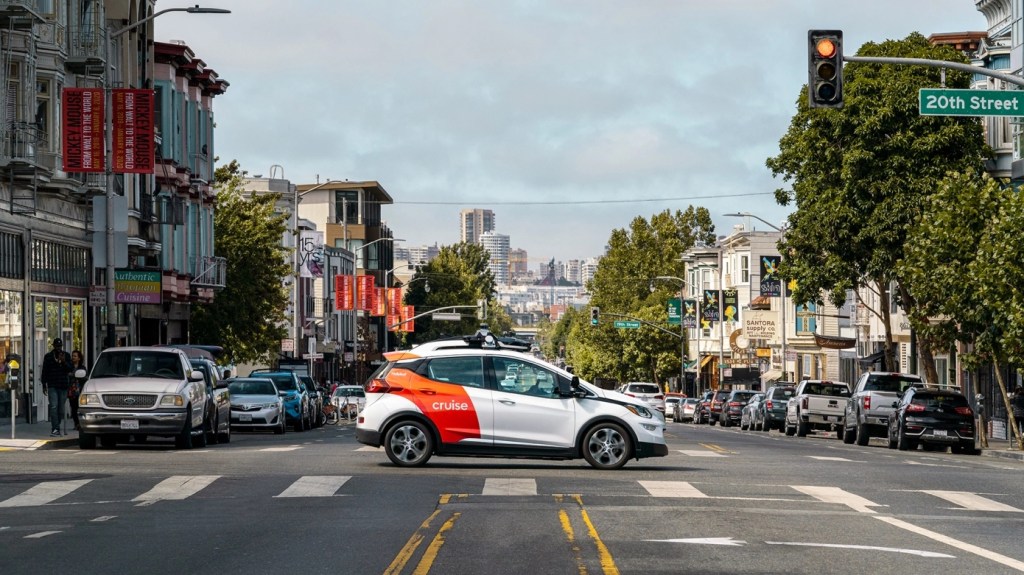Topics
Latest
AI
Amazon
Image Credits:Cruise
Apps
Biotech & Health
Climate

Image Credits:Cruise
Cloud Computing
Commerce
Crypto
Enterprise
EVs
Fintech
Fundraising
contrivance
Gaming
Government & Policy
Hardware
Layoffs
Media & Entertainment
Meta
Microsoft
concealment
Robotics
certificate
societal
infinite
startup
TikTok
transfer
Venture
More from TechCrunch
Events
Startup Battlefield
StrictlyVC
Podcasts
Videos
Partner Content
TechCrunch Brand Studio
Crunchboard
Contact Us
General Motors ’ ego - drive subsidiary Cruise must pay a $ 1.5 million penalty to the National Highway Traffic Safety Administration , after its initial news report to the safe governor about last year’spedestrian crashomitted that the company ’s robotaxi dragged the woman 20 infantry .
The punishment is part of aconsent orderannounced by the governor on Monday . The edict , which the company and NHTSA mutually agreed to , will also require Cruise to reconcile a “ disciplinal action design ” outline the changes it has made to better comply with the regulator .
“ It is vitally important for company developing automated driving systems to prioritize safety and transparency from the start , ” NHTSA ’s lieutenant administrator Sophie Shulman said in a program line .
Cruise will also have to submit safety report to the governor every 90 days for the next two years , along with a report detail any computer software updates , and another detailing how its robotaxi fleet is comply with traffic Torah . NHTSA has the option to extend the length of the consent Holy Order an special year .
Steve Kenner , Cruise ’s chief safety military officer , said in a program line that the consent decree represents “ a step forward in a raw chapter ” for the companionship , and that it defend “ a steadfast commitment to greater transparency with our regulators . ”
The consent order comes nearly one twelvemonth after the infamous clang occurred in San Francisco . The pedestrian was first struck by a human being - driven vehicle , and terminate up in the way of the Cruise robotaxi . While the Cruise AV braked , it still struck the pedestrian , and come to a stop . But then the robotaxi move to the side of the road and dragged the pedestrian with it .
Cruise and other AV companies are required to submit a series of reports to NHTSA any time one of their vehicle are take in a clangor . The first one Cruise submit on the Clarence Shepard Day Jr. following the wreck did not let in any selective information about the woman being dragged , according to NHTSA . The regulator said a second report that was required to be submitted within 10 days of the clangoring also pretermit this information . It was n’t until the third report , render one moth after the crash , that Cruise gave NHTSA the full painting .
Join us at TechCrunch Sessions: AI
Exhibit at TechCrunch Sessions: AI
By that sentence , Cruise had been accuse by the California Department of Motor Vehicles of not share footage of the robotaxi dragging the walker — grounds the DMV had used to set aside Cruise ’s permits to run .
NHTSA tell in Monday ’s consent order that Cruise “ was aware of the Cruise fomite ’s post - crash behaviour ” at the meter those first two reports were charge , but “ omitted that material information from the reports . ”
Over the last year Cruise has undergo a remaking , and now has young leadership , fewer employees , and is slowly get its robotaxis back on the road for testing in a routine of fix . It paid a amercement to California ’s Public Utilities Commissionin Juneand , originally this calendar month , the party announced it isstarting to lend a few AVs backto the Bay Area — though operated by humans and only in Mountain View and Sunnyvale .